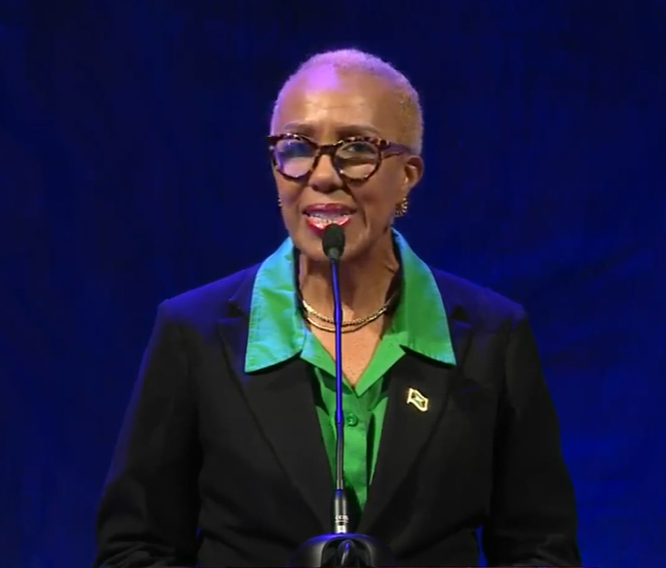KINGSTON, Jamaica — Sparks flew across the stage Tuesday night as Jamaica’s political heavyweights collided in a fiery debate on economic policy, with the spotlight fixed on the People’s National Party’s (PNP) proposed $3.5 million income tax threshold.
Finance Minister Fayval Williams didn’t mince words, branding the PNP’s plan as “the biggest political scam in Jamaican history.” Her accusation set the tone for a charged night of exchanges between the governing Jamaica Labour Party (JLP) and the opposition.
Opposition Spokesman on Finance, Julian Robinson, stood firm, defending the PNP’s intention to raise the threshold without introducing new taxes. He pointed to projected economic growth as the funding source, estimating $140 billion in additional revenue over three years. According to Robinson, fiscal room would also be created by reordering the budget around new party priorities, with implementation slated for April 2026.
Williams, however, called bluff.
“Lies, lies, lies,” she fired back. “This cannot happen without new taxes. You’re playing games with people’s hopes.”
The intensity ratcheted up when Robinson admitted the move would carry a $55 billion price tag. He quickly reassured the public that the PNP would phase in programmes gradually, aiming to maintain “fiscal integrity.”
The economic debate—part of a series organized by the Jamaica Debates Commission—featured the JLP’s Williams, Health Minister Dr. Christopher Tufton, and Minister without Portfolio Dr. Dana Morris-Dixon, facing off against the PNP’s Robinson, Peter Bunting, and Kisha Anderson.
Moderated by George Davis of Nationwide News Network, the session also included questions from Our Today’s Al Edwards, TVJ’s Andrea Chisholm, and CVM’s Amoy Harriott, who channeled social media concerns into the live debate.
This was the second of three debates. The first—centered on social issues—aired Saturday. The final face-off, set for Thursday, will see Prime Minister Andrew Holness and Opposition Leader Mark Golding go toe-to-toe, in what’s expected to be the most consequential exchange before voters head to the polls.
With bold promises, fierce rebuttals, and the economy hanging in the balance, Tuesday night’s debate reminded the nation just how high the stakes are.






